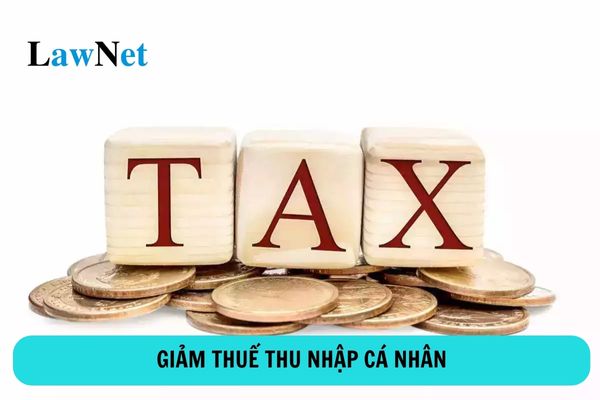What are regulations on personal income tax reduction in Vietnam?
What are regulations on personal income tax reduction in Vietnam?
Pursuant to Article 4 of Circular 111/2013/TT-BTC, taxpayers who face difficulties due to natural disasters, fires, accidents, or serious illnesses affecting their tax payment capability are eligible for a tax reduction corresponding to the level of damage, but not exceeding the payable tax amount. Specifically:
- Determining the Tax Reduction Amount
+ The tax reduction review is conducted annually. Taxpayers encountering difficulties due to natural disasters, fires, accidents, or serious illnesses in any tax year will have the payable tax for that year reduced accordingly.
+ The taxable income basis for determining the tax reduction is the total personal income tax payable in the tax year, including:
++ Personal income tax already paid or deducted for income from capital investment, income from capital transfer, income from real estate transfer, lottery winnings, royalties, franchising income, inheritance income; and gift income.
++ Personal income tax payable for business income and income from wages and salaries.
+ The basis for determining the reduction amount is the total actual costs to remedy the damage minus (-) any compensation received from insurance organizations (if any) or from organizations/individuals causing the accident (if any).
+ The reduced tax amount is determined as follows:
++ If the payable tax in the tax year is greater than the level of damage, the reduced tax is equivalent to the level of damage.
++ If the payable tax in the tax year is less than the level of damage, the reduced tax is equivalent to the payable tax.
- Procedures and Dossiers for Tax Reduction Review follow tax management guidelines.

What are regulations on personal income tax reduction in Vietnam? (Image from the Internet)
Which incomes are tax-exempt incomes in Vietnam?
Pursuant to Article 4 of the Personal Income Tax Law 2007, supplemented by Clause 3, Article 2 of the Law on Amendment of Various Tax Laws 2014, the tax-exempt incomes are as follows:
- Income from the transfer of real estate between spouses; biological parents and biological children; adoptive parents and adopted children; parents-in-law and daughters-in-law; parents-in-law and sons-in-law; paternal grandparents and paternal grandchildren; maternal grandparents and maternal grandchildren; siblings.
- Income from the transfer of residential properties, homestead land use rights, and assets attached to the homestead land of an individual in cases where the individual possesses only one residential property or homestead land.
- Income from the value of land use rights granted by the State to individuals.
- Income from inheritance and gifts in the form of real estate between spouses; biological parents and biological children; adoptive parents and adopted children; parents-in-law and daughters-in-law; parents-in-law and sons-in-law; paternal grandparents and paternal grandchildren; maternal grandparents and maternal grandchildren; siblings.
- Income of households and individuals directly engaged in agricultural, forestry, salt production, aquaculture, and fisheries that have not been processed into other products or have only been minimally processed.
- Income from the conversion of agricultural land assigned by the State for production purposes by households and individuals.
- Income from interest on savings at credit institutions and interest from life insurance contracts.
- Income from remittance.
- Night-shift wages and overtime pay that are higher than daytime working wages as stipulated by the law.
- Retirement pensions paid by Social Insurance.
- Income from scholarships, including:
+ Scholarships received from the State budget;
+ Scholarships received from domestic and foreign organizations under their sponsorship programs.
- Income from compensation for life and non-life insurance contracts, compensation for occupational accidents, State compensation, and other compensations as prescribed by law.
- Income received from charitable funds established or recognized by competent State authorities, operating for charitable and humanitarian purposes and not for profit.
- Income received from foreign aid for charitable and humanitarian purposes in governmental and non-governmental forms approved by competent State authorities.
- Income from wages and salaries of Vietnamese sailors working on foreign maritime carriers or on international maritime carriers of Vietnam.
- Income of individuals who are the owners or users of ships and individuals working on ships from activities directly supplying goods and services serving offshore fishing operations.
How is the to determine personal income tax period in Vietnam?
Pursuant to Article 7 of the Personal Income Tax Law 2007, amended by Clause 3, Article 1 of the Amendment Law on Personal Income Tax 2012, the tax period is defined as follows:
- The tax period for resident individuals is stipulated as follows:
+ The annual tax period applies to income from business activities; income from wages and salaries;
+ The tax period per occurrence of income applies to income from capital investment; income from capital transfer, excluding income from the transfer of securities; income from real estate transfers; lottery winnings; royalties; franchising income; inheritance; and gifts;
+ The tax period per transfer or annually for income from the transfer of securities.
- The tax period for non-resident individuals is calculated per occurrence of income for all taxable income.

